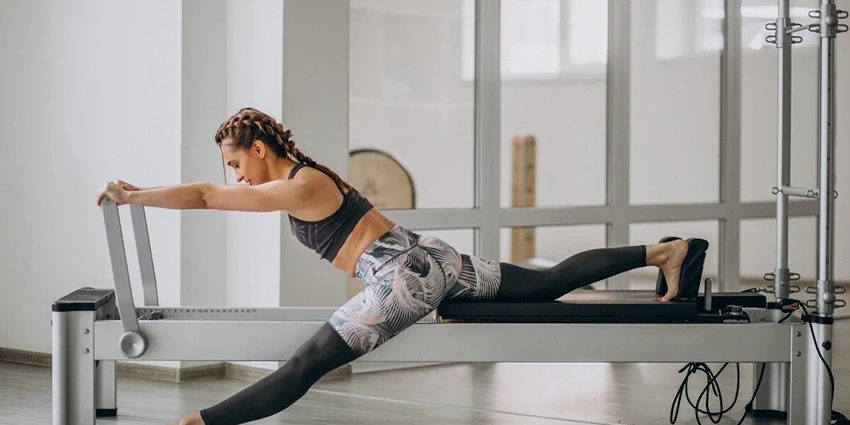At Rac Women, we believe in the power of community and the transformative impact of group strength sessions. Our approach to fitness is not just about building muscle; it’s about fostering a supportive environment where women can grow stronger together, both physically and mentally.
In This Article
The Benefits of Group Strength Training

Group strength training is more than a fitness trend; it’s a pathway to a healthier lifestyle. Here are some of the key benefits:
- Physical Health: Engaging in regular strength training enhances muscle tone, boosts metabolism, and increases bone density.
- Mental Well-being: The group setting provides motivation and accountability, which are crucial for mental health and resilience.
- Social Interaction: Working out in a group breaks the monotony of solo routines and adds a social element to exercise.
Physical Benefits: Muscle Tone, Strength, and Endurance
Strength training in a group setting is not just about lifting weights; it’s a holistic approach to improving overall health. According to the Mayo Clinic, strength training can help manage weight, increase metabolism, and enhance quality of life.
Table 1: Physical Benefits of Group Strength Training
| Benefit | Description | Impact on Women |
| Muscle Tone | Engaging major muscle groups leads to toned and defined muscles | Enhances body confidence |
| Strength | Increased muscular strength for daily activities | Promotes independence |
| Endurance | Ability to perform activities for longer periods without fatigue | Improves overall stamina |
Psychological Benefits: Motivation and Community
The psychological benefits of group strength sessions are significant. The camaraderie and shared goals within a group can lead to increased motivation and a stronger commitment to fitness goals.
Table 2: Psychological Benefits of Group Strength Training
| Benefit | Description | Impact on Women |
| Motivation | Group dynamics encourage pushing personal limits | Fosters a growth mindset |
| Accountability | Commitment to attend sessions and meet expectations | Builds discipline |
| Social Support | Emotional support from peers during challenging workouts | Reduces stress |
Key Components of an Effective Group Strength Session
An effective group strength session is more than just a workout; it’s a carefully crafted experience designed to maximize benefits for all participants.
Structured Program Design
A well-structured program is essential for ensuring that all participants can work towards their fitness goals in a safe and effective manner. This includes a warm-up, the main workout, and a cool-down phase, with exercises selected to target all the major muscle groups.
Expert Guidance and Supervision
Our certified trainers provide expert guidance to ensure that each member performs exercises correctly and efficiently, reducing the risk of injury and maximizing the benefits of each session.
Equipment and Facility Considerations
The right equipment and facilities play a crucial role in the success of group strength sessions. At Rac Women, we ensure that our spaces are equipped with a variety of tools to cater to different strength levels and workout styles.

Group Dynamics and Strength Training
The dynamic of a group can significantly influence the effectiveness of a workout. Understanding and managing these dynamics is key to a successful group strength session.
The Role of Teamwork and Support
Teamwork is at the heart of group strength sessions. Encouragement and support from fellow members can make challenging workouts more achievable and enjoyable.
Managing Different Fitness Levels within a Group
It’s important to recognize and accommodate different fitness levels within a group. Our trainers are skilled at modifying exercises to ensure that every member can participate fully, regardless of their starting point.
Customizing Group Strength Sessions for Women
At Rac Women, we specialize in tailoring group strength sessions to meet the unique needs of women.
Addressing Specific Needs and Goals
We recognize that each woman’s fitness journey is personal. Our programs are designed to support individual goals, whether it’s weight loss, muscle gain, or improving overall health.
Incorporating Women-Specific Strength Training Principles
Understanding the physiological differences between men and women allows us to create strength training programs that are more effective for female bodies.
Table 3: Customizing Strength Training for Women
| Focus Area | Description | Rac Women’s Approach |
| Hormonal Fluctuations | Adjusting intensity based on menstrual cycle | Personalized schedules |
| Bone Density | Targeting exercises that promote bone health | Emphasis on weight-bearing activities |
| Body Composition | Tailoring workouts to women’s fat distribution and muscle mass | Balanced and varied routines |

Designing a Group Strength Training Program
Creating a program that caters to a group’s diverse needs requires a delicate balance of science, experience, and innovation.
Program Ideas for Varied Fitness Goals
Every woman comes to Rac Women with a unique set of goals. Our programs are designed to be adaptable, whether the aim is to build muscle, lose fat, or enhance overall fitness.
Table 4: Program Adaptations for Fitness Goals
| Goal | Program Focus | Training Adaptations |
| Muscle Gain | Progressive overload, hypertrophy-focused workouts | Increased resistance, volume |
| Fat Loss | High-intensity interval training, circuit-style sessions | Shorter rest periods, varied exercises |
| General Fitness | Balanced approach with strength, cardio, and flexibility | Mixed modalities, steady progression |
Balancing Strength Workouts with Cardio and Flexibility
A well-rounded fitness regimen includes more than just lifting weights. Incorporating cardio and flexibility work ensures a holistic approach to health and fitness.
Table 5: Balancing Workout Components
| Component | Description | Benefits |
| Strength Training | Resistance exercises to build muscle and strength | Core component of fitness |
| Cardio | Aerobic activities to improve cardiovascular health | Enhances endurance, burns calories |
| Flexibility | Stretching and mobility exercises | Prevents injury, improves range of motion |
Measuring Progress in Group Settings
Tracking progress in a group setting can be challenging, but it’s essential for maintaining motivation and demonstrating the effectiveness of our programs.
Tracking Individual and Group Performance
We employ a variety of tools and metrics to track both individual and group progress, ensuring that every member feels recognized and valued.
Table 6: Performance Metrics
| Metric | Individual Tracking | Group Tracking |
| Strength Gains | Personal records in lifts | Average increase in group strength |
| Body Measurements | Changes in body circumference and composition | Group trends in body composition |
| Fitness Tests | Benchmark workouts and timed sessions | Group averages and improvements |
Celebrating Milestones and Successes
At Rac Women, we celebrate every victory, big or small. Acknowledging personal bests and group achievements fosters a supportive and motivating environment.

Advanced Techniques in Group Strength Training
To keep our members engaged and progressing, we incorporate advanced training techniques into our group sessions.
Incorporating High-Intensity Interval Training (HIIT)
HIIT is a powerful tool for fat loss and conditioning. By interspersing intense bursts of activity with short rest periods, we maximize calorie burn and increase cardiovascular fitness.
Progressive Overload and Periodization
To ensure continuous improvement, our programs use progressive overload and periodization. This means gradually increasing the demands on the body to keep adapting and growing stronger.
Table 7: Advanced Training Techniques
| Technique | Description | Application in Group Sessions |
| Progressive Overload | Gradually increasing the weight or intensity of exercises | Ensures continuous improvement |
| Periodization | Structuring training into phases with specific goals | Prevents plateaus, optimizes performance |
FAQs: Insights from the Experts at Rac Women
Our members often have questions about group strength training. Here are some of the most common queries:
Common Questions and Expert Answers
We recommend 2-3 sessions per week to allow for adequate recovery and growth.
Absolutely. Strength training can boost metabolism and increase muscle mass, which helps burn more calories.
Yes, our trainers are skilled at modifying exercises to cater to all levels of fitness.
Tips for First-Timers and Seasoned Participants
- For Newcomers: Start slow and focus on learning the correct form.
- For Veterans: Challenge yourself with advanced techniques and heavier weights.
Table 8: FAQs and Tips
| Question/Tip | Answer/Advice |
| Starting Out | Begin with foundational movements and focus on form. |
| Progressing | Incorporate varied exercises and increase intensity. |
| Overcoming Plateaus | Try new techniques and adjust your program periodically. |
Ellen Crandall
Meet Ellen, your fitness compass in the world of athletics, training, and gym culture. With a commitment to well-being and a penchant for all things workout-related, Ellen is here to guide you on your journey to a healthier, fitter you. Join the fitness revolution, led by Ellen, and embrace the power of an active lifestyle.




